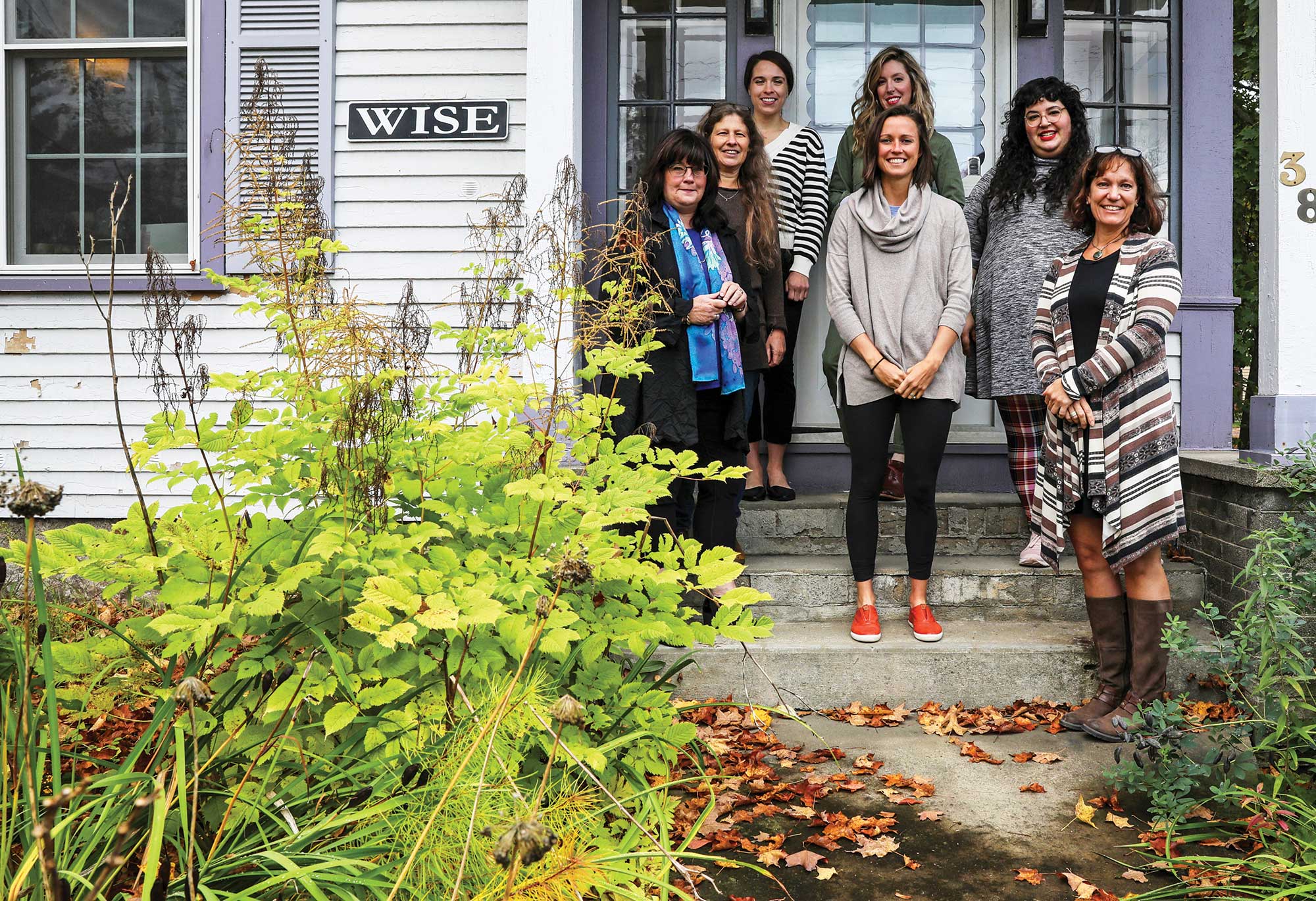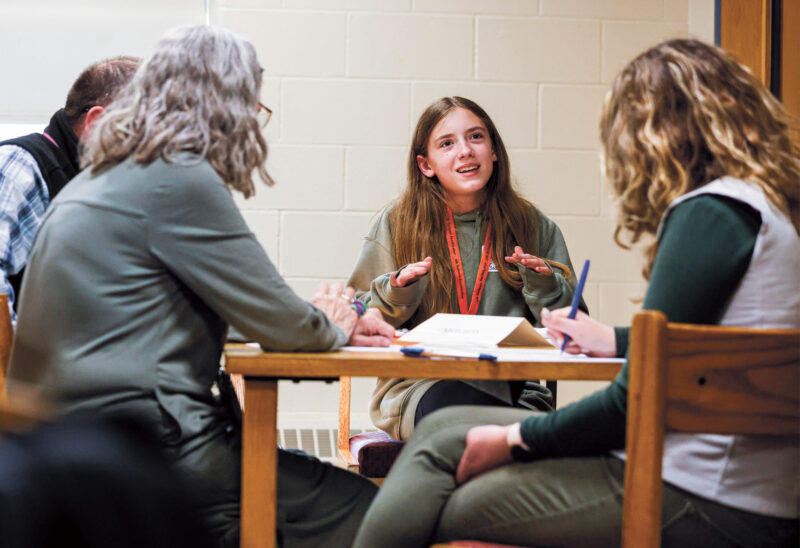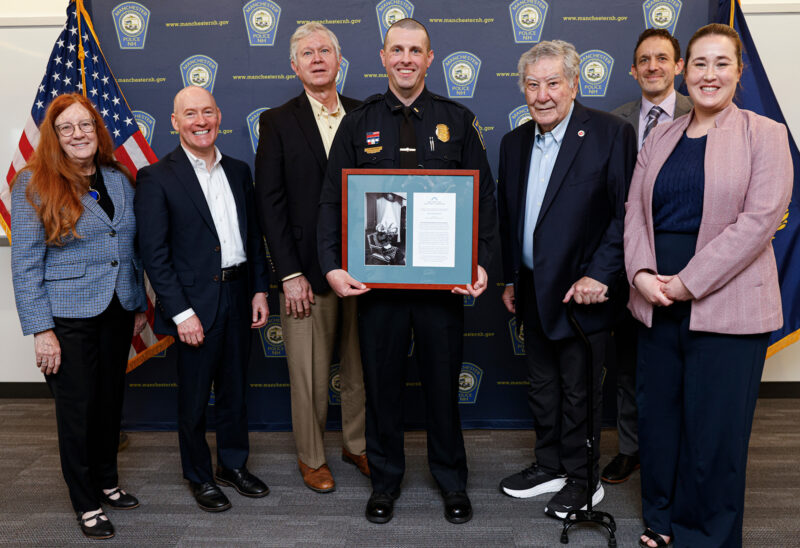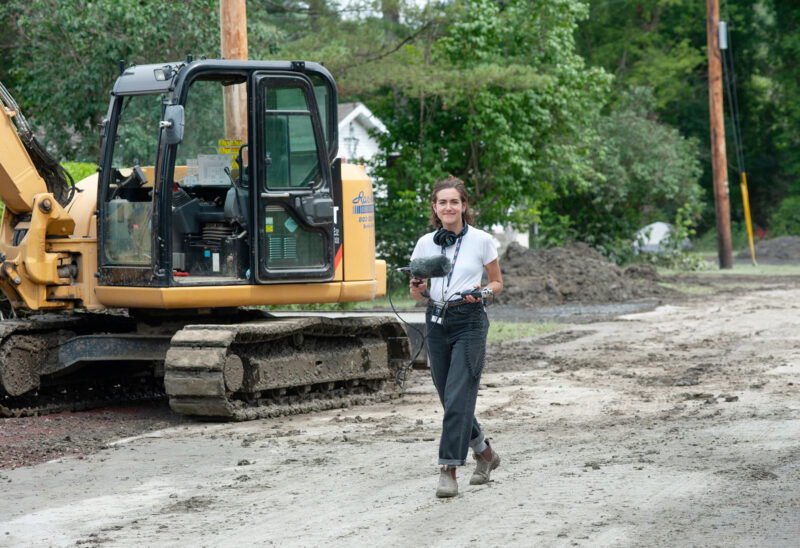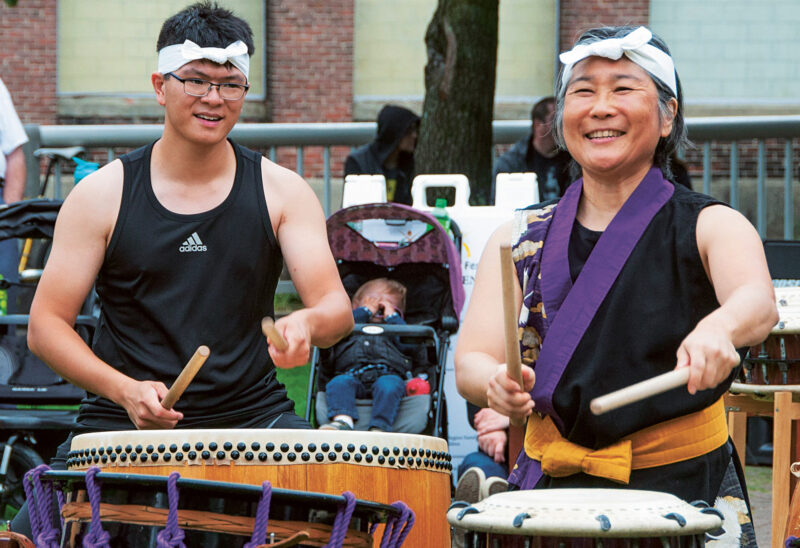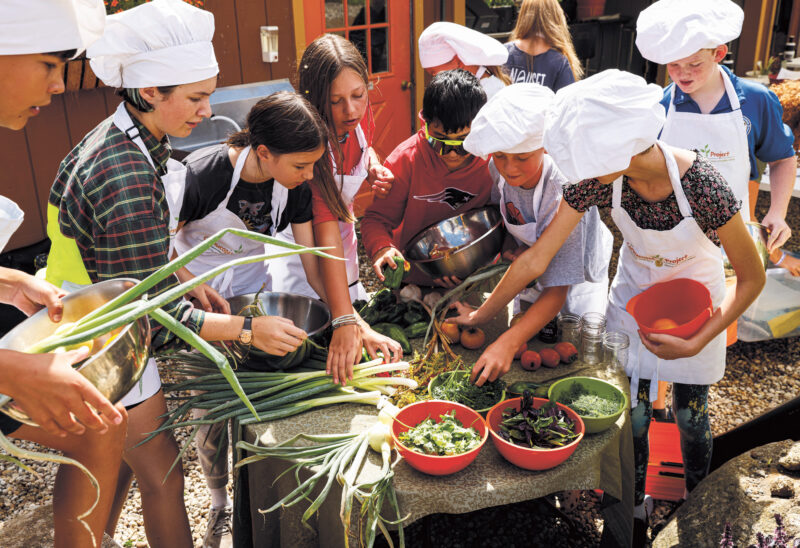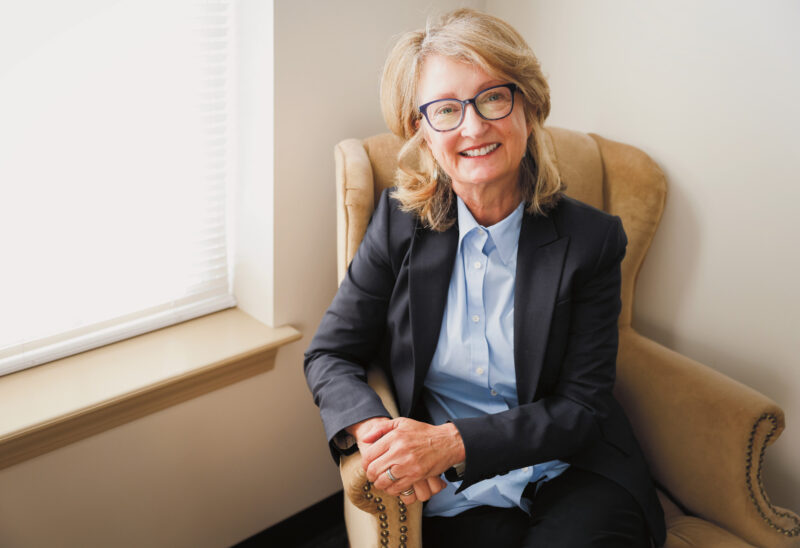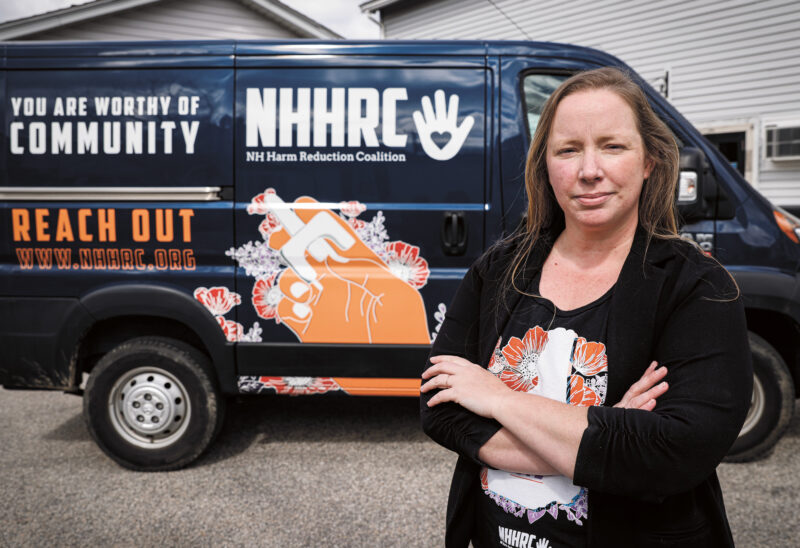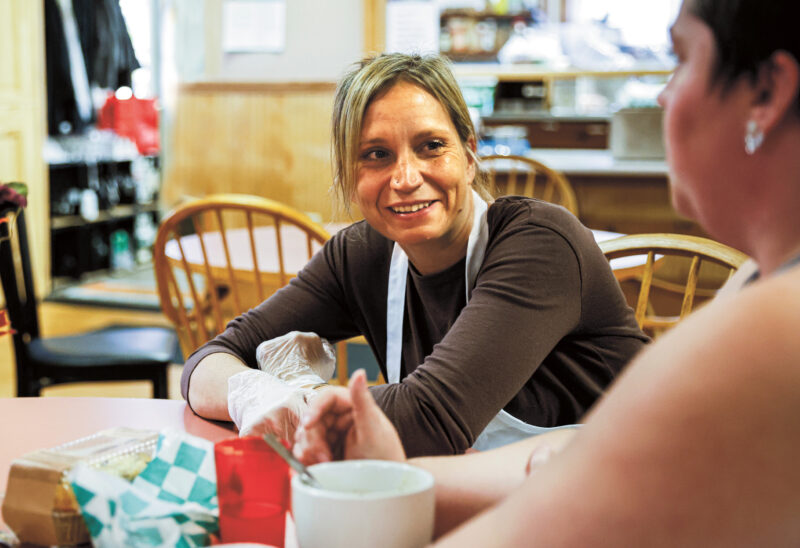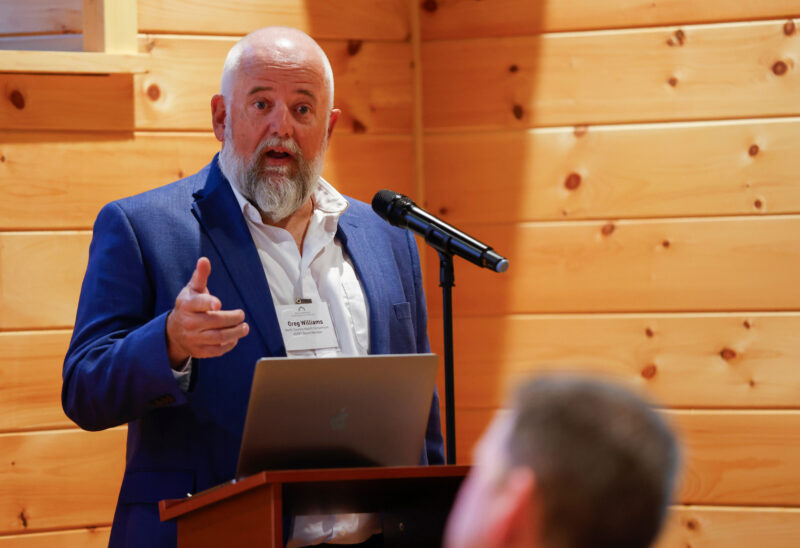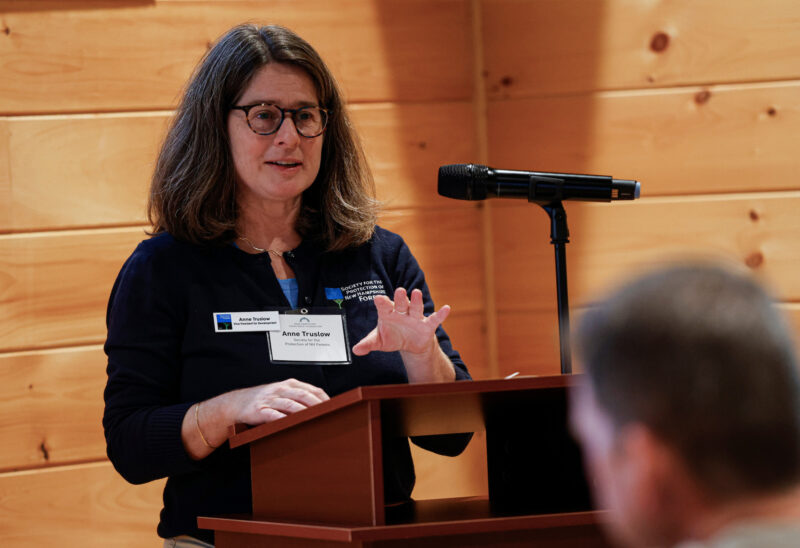For nearly a half century, WISE has been providing advocacy and support for victims of gender-based violence in the Upper Valley. WISE has established itself as a community presence and community force, working with law enforcement and first responders, health care providers and schools; operating a 24-hour crisis line and a safe home; growing to a staff of 20 who work as advocates and violence prevention educators in communities, courts and on campuses across the region.
“Every day, we show up fully committed to supporting survivors and ending gender-based violence,” said WISE Executive Director Peggy O’Neil. “We want survivors to know that our incredible team of advocates is here for you, we believe you, and we will support you every step of the way.” WISE (formerly known as Women’s Information Service, Inc.) is one of three organizations working against domestic and sexual violence that the Foundation supported with operating grants through its Community Grants program in 2019. Grants were also made to Haven, in Portsmouth, and Starting Point Services for Victims of Domestic & Sexual Violence in Conway.
WISE serves about 1,500 people a year in 21 communities.
There is no “typical” day at WISE, because when you support people experiencing crisis, says program advocate Brianne Gallagher, “You don’t know what’s going to unfold.”
Here is some of what happened on a recent Monday:
7:55 a.m.
The coffee is on at the WISE program center in Lebanon, and that matters. The staff at WISE work to create a welcoming atmosphere for people who need help. No one walks into this building without being offered coffee, tea and a snack.
8:00 a.m.
WISE Program Director Kate Rohdenburg readies for a presentation at the Upper Valley Health Priorities Legislative Breakfast, where she will speak to lawmakers and medical professionals.
8:15 a.m.
Amanda Moses, WISE youth advocacy coordinator, takes the report from the crisis line on calls that came in overnight and huddles with colleagues to plan follow-up. During the night, a volunteer crisis-line operator met a victim of violence at the hospital, remaining with her until daybreak. Staff will follow up to offer additional services. They will also call a person who needed advice about talking to a family member who had suffered sexual violence, and a woman who needs an advocate to accompany her to court.
8:30 a.m.
The phone rings at the program center, and Moses picks it up. A woman who describes a harrowing experience of sexual violence and trafficking needs help.
9:00 a.m.
Sophie Bodnar, WISE’s rural advocacy coordinator, is in Windsor County Court in Vermont, where she will spend the morning supporting survivors requesting restraining orders. A small team of WISE volunteers is also on hand to sit behind the women in court during their hearings, in silent solidarity.
9:00 a.m.
A woman comes to the door of the program center. Her abusive ex-partner is now in jail, and she cannot afford his portion of the rent. Her landlord is threatening eviction. WISE advocate Pam Broadley and other staff members put their heads together. Precious emergency “special assistance” funds are allocated. A rent check is cut, and Broadley works with the landlord to keep the woman in her housing.
11:15 a.m.
Campus Advocate Bailey Ray is delivering WISE materials around Dartmouth College — from the Office of Greek Life to Health Services to the Athletic Department. Ray works from an on-campus office every Monday, providing crisis support, advocacy and prevention to students, faculty and staff.
1:30 p.m.
Gallagher meets with a survivor who is undergoing in-hospital addiction treatment.
3:00 p.m.
Gallagher arrives at the Child Advocacy Center in Lebanon to meet with a child survivor and her family.
3:15 p.m.
Residents of the WISE Safe Home gather for a meeting with Advocate Pam Broadley. The house, which accommodates three adults and their children, serves as transitional housing in one of the tightest housing markets in the state. It is always full, and there is always a waiting list. WISE also provides emergency short-term shelter in motels.
3:41 p.m.
WISE Educator Celine Guedj hits “send” on one of scores of emails to health educators, making arrangements for a lesson in gender-based violence prevention in one of 34 public and private schools across nine districts in which WISE offers programming.
4:30 p.m.
The coffee pot is washed, and calls are turned over to the overnight crisis line. WISE has 40 volunteers, each of whom undergoes 30 hours of training, to answer the crisis line overnight.
3:49 a.m.
Kate Harrison, a WISE crisis line volunteer (and board member), is woken from sleep. She dresses, grabs her keys and drives to the hospital, where a woman needs support.

